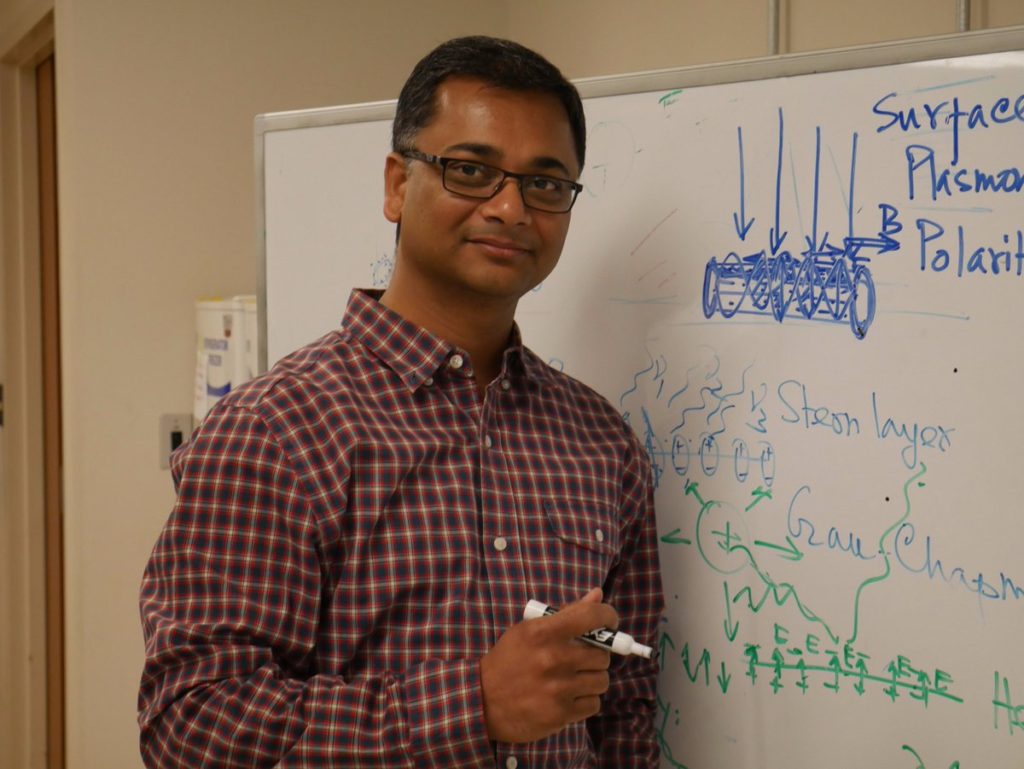
Princess Anne, MD – (May 17, 2017) – A team of UMES researchers propose to improve the success rate of students who take physics courses. Led by Dr. Kausik S. Das, the team has been awarded a $400,000 grant from the National Science Foundation to improve student engagement and retention and to invigorate innovation through physics instruction and undergraduate capstone research projects. They suggest that science and engineering students will collaborate effectively in a group environment, grow intellectually and make original discoveries.
A major part of the process involves the team of five creating a pool of culturally and scientifically relevant clicker questions that will enhance both engagement and critical thinking during regular lectures. Capstone research projects will also work to enhance critical thinking as well as creativity, innovation, communication and collaboration with inter- and intra-discipline students.
“College students across the country will benefit from the outcomes of this research,” said Das, principle investigator and assistant professor of physics at UMES. “The skills a student learns in a physics classroom and a physics laboratory will take him or her far in life.”
In collaboration with an award winning science cartoonist, who taught mathematics at Harvard and cartooning at MIT, Das and his team have proposed to create a pool of more than 350 humanized clicker questions spanning the whole undergraduate physics curriculum to engage students with conceptually challenging questions with a touch of humor. In laboratories, instead of traditional “cookbook” activities, students will be guided through stages of critical thinking and through interdisciplinary research projects that will move them toward authentic discovery.
Das says that he got the inspiration to try this undergraduate authentic discovery model at UMES from his UC Berkeley visit last summer. Since then he has scaled down several cutting edge research projects to table-top projects and made them suitable for undergraduate students to explore a multitude of interdisciplinary research topics. His mini projects involve synthesizing Nano-particles using plant extracts, synthesis of graphene from a pencil lead and using them for energy harvesting and storage, Nano-particle mediated heat transfer in fluids, paper-microfluidics and paper-electrophoresis, low Reynolds number turbulence, thermo-photovoltaics and Nano-sensors, to name a few.
These pilot projects have produced a start-up company by a UMES alumnus, a patent filing on a new metal oxide based memory device and several peer reviewed papers by undergraduate researchers. In addition, two of Das’ research group students have received full scholarships from the University of Maryland and the University of Maryland, Baltimore County. They will join their Ph.D. programs right after earning their undergraduate degrees. Another student was accepted by the University of California, Berkeley, as a summer research intern this year.
The balance of the team of researchers includes: Dr. Moses T. Kairo, co-principle investigator and dean of the School of Agricultural and Natural Sciences; Dr. Charles Baldwin, assistant professor in the Department of Education; Dr. Joseph Dodoo, physics lecturer; and Robin Hoffman, former director of instructional technologies at UMES.
For more information about the research, contact Das at 410-651-6034 or by email at kdas@umes.edu.
###
Suzanne Waters Street, agriculture communications specialist, School of Agricultural & Natural Sciences, 410-621-3850, sstreet@umes.edu.

